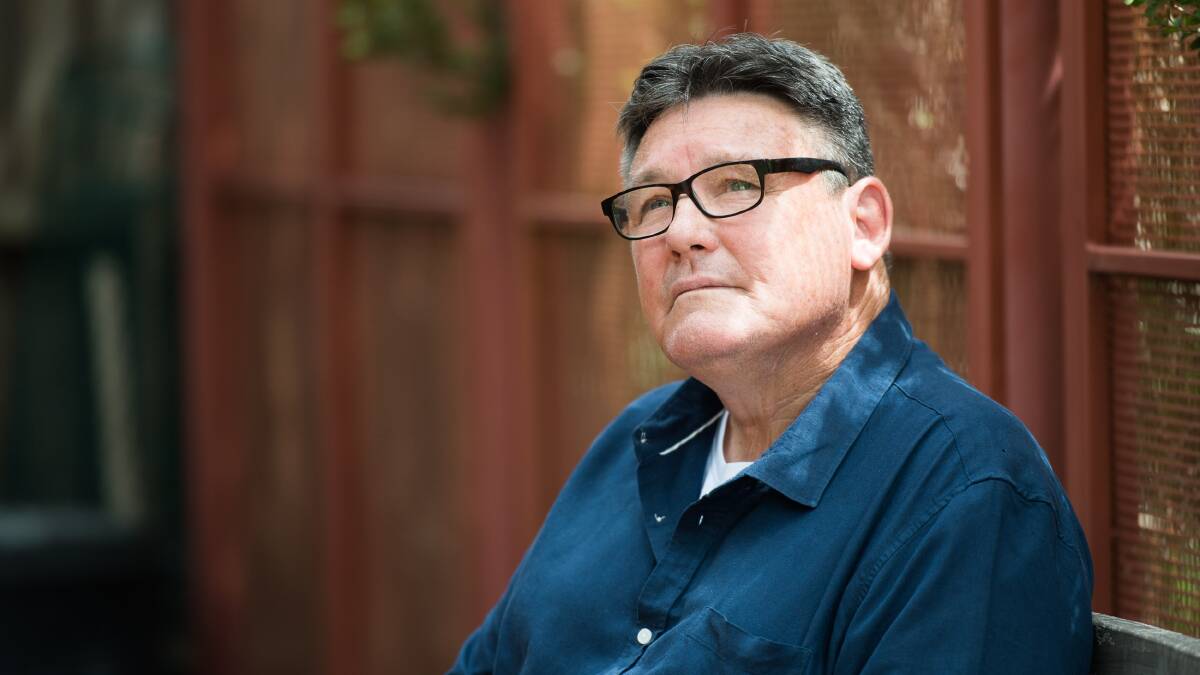First Nations people with cognitive impairments are telling their stories of time spent in prison to press for diversion and support programs to sidestep the criminalisation of disability.
Subscribe now for unlimited access.
or signup to continue reading
Justen Thomas is appearing at Disability Royal Commission hearings into the justice system this week to ask that people like him are given a chance. Justen was a ward of the state and not diagnosed with an intellectual disability and epilepsy until quite late in life.
He was frequently in court from a young age, but without a support person who could explain what was happening, what documents he needed, or tell the court about his impairments or the trauma he faced in children's refuges.
Justen now runs workshops for people with disabilities and juvenile justice staff, and was a delegate to the United Nations to advocate for First Nations people with disability.
"I came good at the end of it," Justen says. However, he has a criminal record to show of that stretch of his life without support, and he also missed the birth of a son.
In NSW, a program that diverts people with cognitive impairments has been running since 2017, but funding is due to end later this year. Justen will tell the commission how these diversion programs can help others with disabilities get help and end the cycle.
Justen wants justice staff to not look down on people who act differently, including in courts and police stations. Those inside prisons should have access to National Disability Insurance Scheme plans, and have more time out of their cells as well as greater access to art and music programs, he says.

Another witness, Geoffrey Thomas has been out of trouble for 20 years. He looks back and wishes the clerk of the court or other justice workers had been able to spot the signs and point him to appropriate services for someone with his needs.
"They need to stop and think - it might not be a person with an ice problem, it might be someone with a mental health problem," Geoffrey says.
A person with a cognitive impairment who is anxious and unsupported might leave the court before the end of proceedings, Geoffrey says, costing taxpayers thousands once arrest warrants and jail time is ordered.
Geoffrey will tell the hearings the most important thing for supporting people with cognitive disabilities, including brain injury, is funding for the support services like the diversion program and the Intellectual Disability Rights Service.
"You can educate all you want, but if they don't have the money to help people like me, then it's nothing," Geoffrey says.
"For me, it was essential, it was a part of growing and getting ahead - it was part of surviving."
When people with disabilities are struggling and need assistance, unintended consequences can happen due to escalation.
"If misunderstood, sometimes the police will engage in that situation and it becomes exacerbated to a degree where it doesn't have to be - in my case I was bound, cuffed and pepper sprayed and taken to the police station," Geoffrey says.
Both the witnesses say there needs to be more lawyers with specific training who can deal with the special needs of someone with an intellectual disability.
Overrepresentation of people with cognitive disabilities in the justice system is being examined by the royal commission this month. Its chair, Ronald Sackville said the high rates of First Nations people with cognitive impairments in the justice system was a sensitive but important topic to examine.
The latest hearings have raised the experiences of people with complex needs who have been detained indefinitely without being convicted due to being unable to plead, as well as one case described by a court as "degrading and inhumane" conditions of confinement.
Our journalists work hard to provide local, up-to-date news to the community. This is how you can continue to access our trusted content:
- Bookmark canberratimes.com.au
- Download our app
- Make sure you are signed up for our breaking and regular headlines newsletters
- Follow us on Twitter
- Follow us on Instagram


